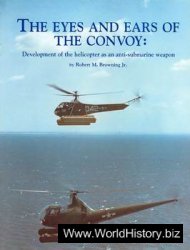Emperor of Nicaea (1259-1261) and then of the restored Byzantine Empire at Constantinople (1261-1282) and founder of the last reigning Byzantine dynasty.
Michael was the son of the Grand Domestic Andronikos Palaiologos and the great-grandson of the Byzantine emperor Alexios III Angelos. He had a distinguished military career, serving in the armies of the empire of Nicaea and the Saljuq sultanate of Rum, before he usurped the throne of Nicaea in 1259. In the same year, in the valley of Pelagonia, in western Macedonia, he achieved a significant victory against a triple coalition consisting of Michael II of Epiros and his Western allies, King Manfred of Sicily and Prince William of Achaia, which paved the way for the liberation of Constantinople from the Latins by the Nicaean army in July 1261 and the restoration of the Byzantine Empire.
Throughout his reign, Michael was preoccupied with the plans of Western rulers to restore the Latin Empire of Constantinople and in particular with the ambitions of Charles I of Anjou, king of Sicily. In the 1260s and 1270s, Michael held negotiations with Popes Urban IV, Clement IV, and Gregory X concerning the reunification of the Latin and Greek Orthodox churches, believing that the pope could and would prevent Charles of Anjou from attacking the Byzantine Empire if the Orthodox Church were subject to Rome. In 1274, Michael’s representatives at the Second Council of Lyons agreed to reunification on the pope’s terms, in spite of widespread and ardent opposition to the agreement among the Orthodox population of his empire. One of the outcomes of the agreement in Lyons was Michael’s proposal to Pope Gregory X that a crusader army should pass through Constantinople on its way to the Holy Land, on condition that the crusaders would conquer and return Anatolia to the Byzantines. Before the details of the agreement were finalized, however, Pope Gregory died, and the new pope, Innocent V, abandoned plans for an overland crusade via Constantinople and Asia Minor.
In 1269 Michael promised King James I of Aragon aid for a crusade, and in 1269-1270 he made a similar offer to King Louis IX of France, with the proviso that Louis would mediate in restraining Charles of Anjou from attacking the Byzantine Empire. Between 1261 and 1277, taking advantage of the continuous enmity between Genoa and Venice over commercial supremacy in his territories, Michael signed treaties with the two Italian city-states, offering them commercial privileges in return for military aid or the promise of neutrality in the event of an attack against his empire from the West. In 1281, his army won a significant victory against the Angevin army at the battle of Berat, in Albania. The end of
Charles of Anjou’s ambitions to conquer Byzantium, however, came on Easter Monday 1282, when an anti-Angevin uprising, known as the Sicilian Vespers, took place in Palermo. Although Michael was not involved in the incident that sparked the uprising, the financial aid and encouragement he had previously offered to Charles’s opponents contributed to the loss of Sicily and the consequent abandonment of Charles’s plan to attack Byzantium. Michael, who had been excommunicated once by Patriarch Arsenios of Constantinople for blinding the son and heir of Emperor Theodore II Laskaris, and thrice by Pope Martin IV for failing to implement the reunification of the churches in the Byzantine Empire, died on 11 December 1282. He was succeeded by his son Andronikos II.




 World History
World History









